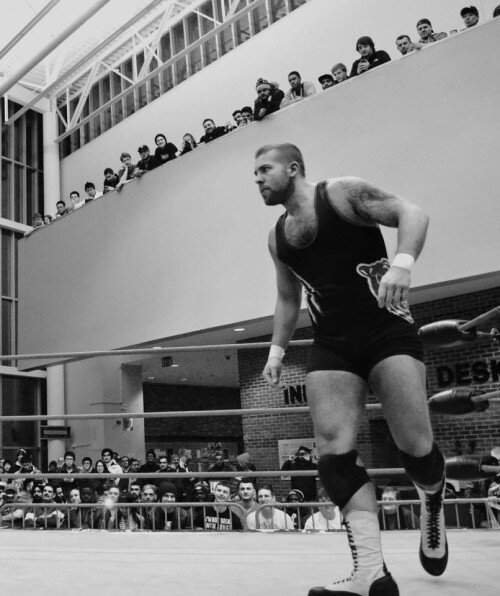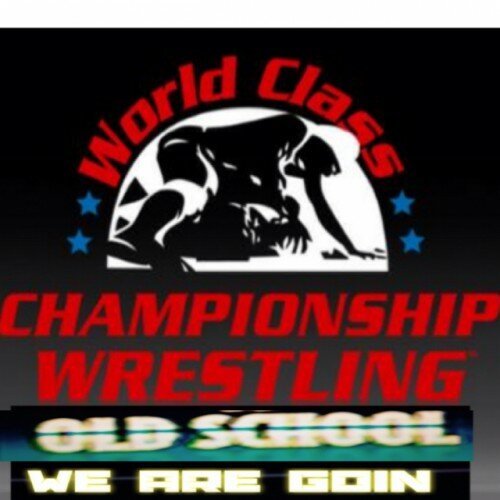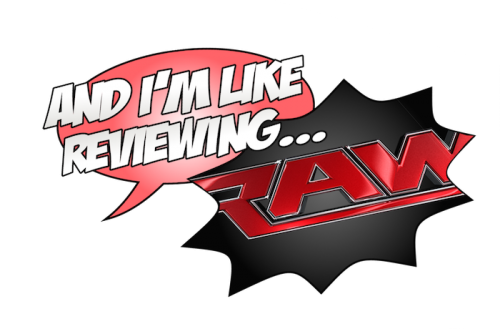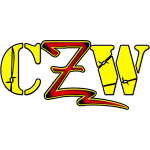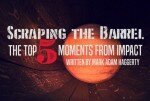The Injuries Are Real
“We embrace pain and burn it as fuel for our journey.”- Kenji Miyazawa
While I was in 2CW this past week, I noticed how Pepper Parks rallied to help out his wife, Cherry Bomb, who broke her collarbone on a recent show. He’s been doing so by selling special T-Shirts to help with the surgery costs. There’s been an incredible amount of support from not only the fans, but also wrestlers who have helped supplement the cost of her surgery (see the link at the bottom of this blog if you wish to help support Cherry Bomb). To me, it shows a great amount of love and support for one of our own. It got me thinking, though, of how injuries can happen at any time. It’s something I think about daily. But, like so many of the men and women in the back, we march on regardless, for the love of what we do.
Injuries (no matter how minor or severe) are difficult for any wrestler. It takes away an opportunity for us to make money. It takes us away from being with our friends and colleagues in the back. But most of all, it takes time away from doing what we love the most; to perform. They can often come at the most inconvenient of times. Take, for example, “Stone Cold” Steve Austin. In 1997, he was on the cusp of a white-hot push with a feud with Bret Hart and the Hart Foundation. He was set to take the Intercontinental Championship from Owen Hart at Summerslam and be a major player with the title in hand. Due to a piledriver gone awry, he was on the shelf, and the title had to be stripped from him. Even though he’d return later that year and have one of the most successful main event runs of all time, he still experienced problems from the injury, and had to retire in 2003.
In some instances, injuries can end careers. Look at Darren Drozdov. In late 1999, he took a running powerbomb from D’Lo Brown and sustained a broken neck. It not only ended his career, but also made him a quadriplegic permanently. Another example is Magnum T.A. In the late 1980s, he was moving towards the main event scene (winning the United States championship on a couple of occasions), and seemed destined to become the World Heavyweight Champion in the NWA. However, in late 1986, he was involved in a car accident that ended his career. There are more examples, but I’m not going to list them all. The point is that these are things we think about each time we step in the ring.
No matter how strong a support system is, we all feel some sort of negative emotions while being inactive. Some may be more outwardly with their emotions, and others carry their emotions internally. Nonetheless, in my experience, I underwent some pretty negative emotions when I broke my hand in 2013. While it certainly wasn’t as bad as a neck or spinal injury, this was my first time being injured in any way (I never broke a bone or went to the hospital until this point). I can admittedly say that I did not take it well. I went through these stages in different phases:
• Denial: When I first injured my hand, I was practicing a spot before the show started. I initially thought something was wrong, but thought that I could work through it. I did the match (which I would never, EVER recommend doing) without incident, but at the risk of greater injury. I went on the next week by not going to the hospital, insisting that my hand (which had by the point BALLOONED in swelling) would go down. After another match (another stupid move on my part) and the swelling persisting, I went to the hospital to get it checked out. The X-Ray showed a break in my middle metacarpal that would require a titanium plate to be inserted (and will stay there for the rest of my life). If something happens again to me, rest assured I will not take a week to get something checked out (I know better now). But in short, in some instances, if we are hurt, we may deny the severity of it (unless it’s an instance where we can’t feel a limb, or if we’re knocked out cold). Once the denial goes away, I transitioned into this phase:
• Anger: There was a period of time that I became pretty angry. Some days, I was angry at myself for allowing the injury to happen. Other days I was angry at others for a variety of reasons. I felt I had to justify my anger somewhere. I tried to keep it cool when visiting local shows, but I had a short fuse. I got annoyed when people continually asked “what happened?” when they saw my hand wrapped up. I grew angry when people told me they wished me a speedy recovery. I got pissed when people would not text or call right away. I became enraged when my friends were going away to wrestle and I wasn’t able to. In short, anything could set me off. It all tied back to being hurt and not being in the ring. Sometimes, accidents happen at the fault of no one. Because of this, I had anger that I couldn’t place on a particular person or thing, it just happened. It lingered until I got to the next phase:
• Depression/Isolation: My doctor had told me that my hand would not heal for 2 months. While 2 months is a drop in a hat compared to more severe injuries, those months felt like an eternity. Minutes became tiresome, hours dragged, and the days felt like they’d never end. I could work out, but was limited in what I could do. As a result, I half-assed my training, and began to eat more junk food to make me feel better. Because I felt like I didn’t have much to say to people, I put off talking to people, or would become self-conscious in trying to reach out to friends. I spent a lot of that time alone, which depressed me more. I felt abnormal and unable to (temporarily) do my passion in wrestling. There were thoughts of “Do I want to keep doing this?” that popped in all the time. As I kept asking myself that question, I answered yes every-time. But how was I going to rise up from my funk? How exactly would I be feeling when I’m cleared? Can I be 100% when I come back? Instead of wallowing in those questions, this is when I moved to this final phase:
• Acceptance/Coming Back: Yes, I got hurt. Yes, it sucks. Yes, it set me back. But this injury was not a reason for me to be constantly angry, or to continually feel sorry for myself. In time, I had to accept full responsibility that the injury happened, and there was no changing it. I was happier than hell to do more complete workouts again. Because I had gained weight, I needed further help. That’s when I hired a personal trainer. I showed up early to shows to roll around in a ring. I went to various schools to help further my in-ring cardio. In short, I had to change myself so I could get people’s attention again.
In what we do, our bodies will be compromised in some form or another. That is not intended to scare anybody looking to get into the business, it’s a fact. Our bodies are not made to fall down regularly on a nightly basis. In the hours of practice and wrestling, muscles and tendons can be torn, and bones can break at any time. The reality of being injured in this business is a very real one. But, if you understand this, and love this business unconditionally still, you will be alright. And you will be alright, Cherry Bomb. You’ll come back better than ever.
If you wish to help Cherry Bomb in funding for her surgery, you can do so by purchasing this exclusive tee at this link:

http://www.prowrestlingtees.com/wrestler-t-shirts/cherry-bomb/operation.html
Catch me in action this weekend at:
Facebook.com/BenjaminBoone
Twitter.com/BenjaminBoone1 (@BenjaminBoone1)
Instagram.com/BenjaminBoone1
Periscope: @BenjaminBoone1
Prowrestlingtees.com/BenjaminBoone

